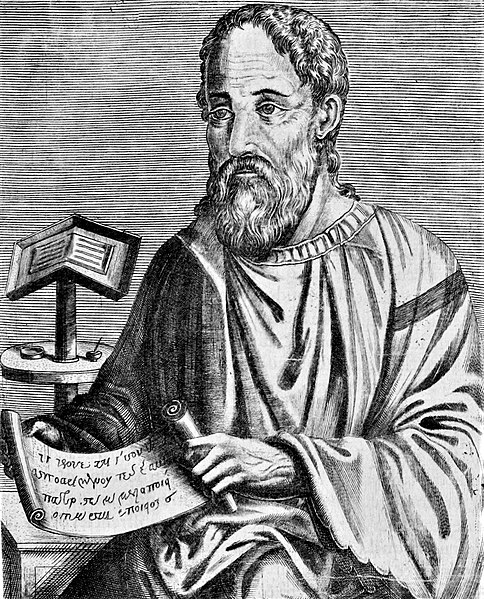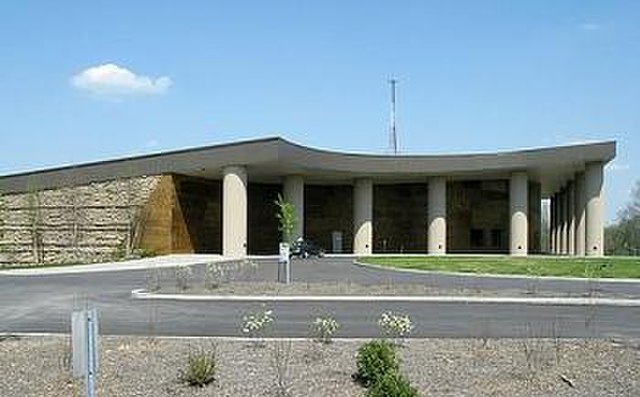Against Celsus, preserved entirely in Greek, is a major apologetics work by the Church Father Origen of Alexandria, written in around 248 AD, countering the writings of Celsus, a pagan philosopher and controversialist who had written a scathing attack on Christianity in his treatise The True Word. Among a variety of other charges, Celsus had denounced many Christian doctrines as irrational and criticized Christians themselves as uneducated, deluded, unpatriotic, close-minded towards reason, and too accepting of sinners. He had accused Jesus of performing his miracles using black magic rather than actual divine powers and of plagiarizing his teachings from Plato. Celsus had warned that Christianity itself was drawing people away from traditional religion and claimed that its growth would lead to a collapse of traditional, conservative values.
Greek text of Origen's apologetic treatise Contra Celsum, which is considered to be the most important work of early Christian apologetics
Dutch illustration by Jan Luyken (1700), showing Origen teaching his students. Origen wrote Contra Celsum around the same time he was trying to establish a Christian school at Caesarea.
Eusebius, the early-fourth century bishop of Caesarea Maritima, shown here in an early modern imaginative representation, declared that Against Celsus provided an adequate rebuttal to all criticisms the church would ever face.
Christian apologetics is a branch of Christian theology that defends Christianity.
The Creation Museum is a young Earth creationism museum run by the creation apologetics organization Answers in Genesis (AiG) in Petersburg, Kentucky.




